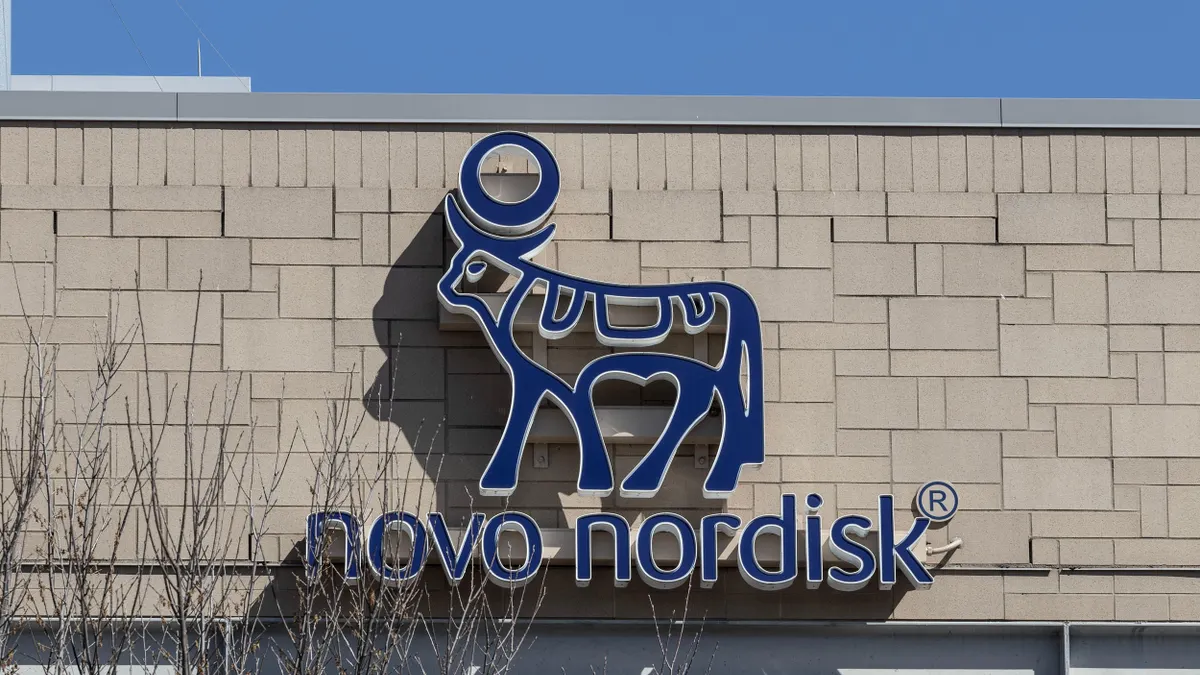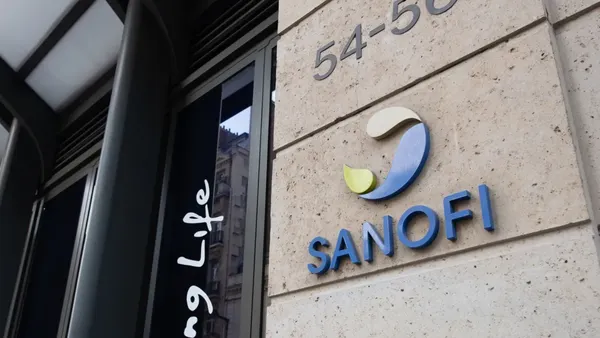Novo Nordisk on Tuesday substantially cut its financial forecasts for the year as cheap, knockoff versions of its popular obesity drug Wegovy continue to hold back the pharmaceutical company’s growth.
The Danish drugmaker now expects sales to increase in 2025 by between 8% and 14%, revising down its May prediction of 13% to 21% growth. Operating profit is also expected to be lower by four to eight percentage points than previously estimated.
Shares tumbled downward by more than 20% in U.S. trading on the news Tuesday morning, erasing over $60 billion in market capitalization.
Alongside the guidance cut, Novo named company veteran Maziar Mike Doustdar as successor to outgoing CEO Lars Fruergaard Jørgensen, who announced plans in May to step down. The company is also reorganizing its research and development, merging two units into a single division that will be led by Martin Holst Lange, who will become Novo’s chief scientist on Aug. 7, the same day Doustdar takes over from Jørgensen.
Novo remains a leading company in what’s become the pharma industry’s fastest-growing market. Ozempic and Wegovy, the branded versions of the GLP-1 drug semaglutide that it respectively sells for diabetes and weight loss, are bringing in tens of billions of dollars in sales.
But Novo’s financial and leadership adjustments reflect the company’s realization its position is slipping. Compounded versions of semaglutide, which were allowed to enter the U.S. market when Ozempic and Wegovy were in shortage, continue to cannibalize Novo’s sales, even after regulators ruled they could no longer be sold en masse.
Novo’s solutions haven’t worked as well as hoped, either. While the company brought Ozempic and Wegovy back into full supply, its attempt to compete on price with lower-cost compounded drugs isn’t bearing fruit. Direct-to-consumer programs that offered the drugs at a cheaper cash price have only yielded about 30,000 prescriptions this year, Novo said Tuesday.
A marketing alliance with telehealth provider Hims & Hers, meanwhile, ended in acrimony just eight weeks after it began in April. Novo accused Hims of continuing to sell knockoff Wegovy, while Hims CEO Andrew Dudum attacked Novo for allegedly pushing Hims to steer patients to its obesity product.
“This is an important moment for Novo Nordisk,” board chair Helge Lund said in a statement on Doustdar’s appointment. “The market is developing rapidly, and the company needs to address recent market challenges with speed and ambition.”
In addition to its problems with compounders, Novo is losing ground to Eli Lilly, which sells the rival GLP-1 drug Zepbound for obesity. Clinical testing showed Zepbound can deliver greater weight loss than Wegovy, although Novo can claim a cardio-protective benefit for its drug that Lilly can’t yet.
Lilly has also out-positioned Novo in development of successor drugs to Wegovy and Zepbound, finding success in testing with a pill called orforglipron.
Novo cited competition as a factor in downgrading its outlook for Wegovy and Ozempic sales in the U.S. The company hopes that recent changes in insurer CVS’ drug formulary will help lift Wegovy moving forward.
Rebuilding momentum will be Doustdar’s priority. The executive has led Novo’s international division, which includes the company’s businesses outside of the U.S., since 2013. He previously oversaw commercial activities in Southeast Asia, Oceania and the Middle East.
“I come to this role with a sense of urgency, a laser focus on high performance, and a fierce determination for Novo Nordisk to aim higher than it’s ever done, and to deliver to many more patients the innovation they need,” Doustdar said in a statement.
Novo said its search for a replacement to Jørgensen included internal and external candidates. Some analysts had expected the company to choose a leader from outside the company.














